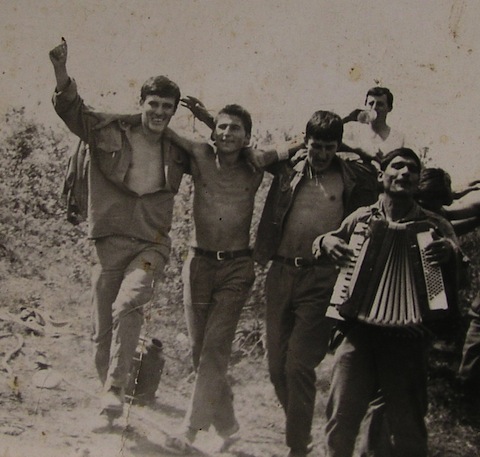
Tough to believe I just recently stumbled upon this treasure trove of Roma-related information, which includes a bevy of rare photos and dozens of audio-enhanced oral histories. I came across the project while trying to get a better sense of what it’s like to endure aerial bombardment—more on that soon—but I ended up most absorbed in the accounts of Roma wedding practices. I was particularly drawn by what the interviewees had to say about the payment of dowries, a practice that strikes me as economically ruinous. Yet the Roma of Kosovo remain great defenders of the tradition, as illustrated by Hazbije Vičkolari’s pro-dowry argument:
Q: Would it be better to dispose of the dowry in the future?
HV: No- it’s better to ask for the dowry, because the groom didn’t work hard to raise and care for my daughter. I did that. To pay the dowry is much better because they (the bride’s family) have worked hard. You’ll sell your house to be able to marry your son. They’ll keep and respect the girl more; she’ll be part of their home. Again, though, if the bride does not obey them then the dowry should be returned.
As this interview makes clear, there has been a steady escalation in dowries over the years, despite the Roma community’s relative penury:
Q: Could you us about the wedding customs you followed?
ED: The customs are the same. The only difference is that our families didn’t have to spend a lot for the bride price, like today. In the past a bride cost only one or two horses.
All of this seems like it can lead nowhere good, as evidenced by the ill effects that dowries seem to have in other parts of the world. As I’ve discussed in this space before, there is an irresistible human impulse to one up each other in matters of honor—even if, in the end, the maintenance of that honor becomes wholly destructive.


Like gas stations in rural Texas after 10 pm, comments are closed.